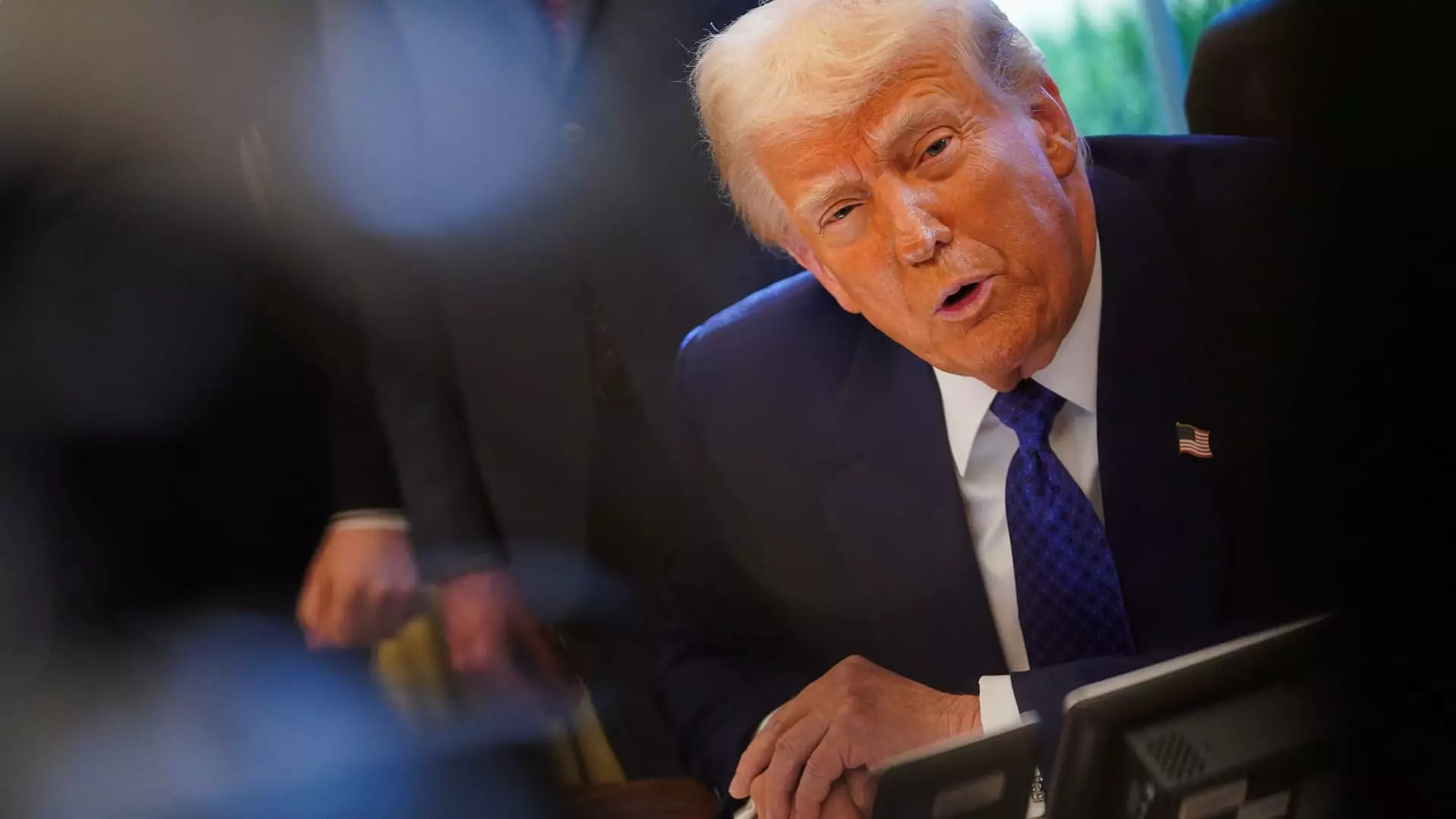As the world watches the ongoing conflict in Ukraine, a new layer of complexity has emerged regarding the United States’ role in the country’s future, particularly concerning its rich deposits of rare earth minerals. In a recent proposal from the Trump administration, discussions have centered around the U.S. potentially acquiring 50% ownership of these valuable resources in exchange for military support and financial reimbursals for aid rendered to Ukraine since the war began in February 2022. This situation not only underscores the strategic value of rare earth minerals in today’s global economy but also raises significant questions regarding sovereignty, international relations, and the ethical implications of such an arrangement.
Rare earth minerals are critical components in modern technology, essential for producing everything from smartphones to defense systems. The U.S. is currently striving to reduce its dependence on foreign sources for these materials, particularly given China’s dominant position in this sector. The proposed ownership share in Ukraine’s rare earth resources is framed as a means for the American government to offset the billions spent in military support. By controlling a share of the mineral wealth, the U.S. stands to gain economically while ensuring that Ukraine remains a partner in the broader geopolitical landscape.
While the acquisition of minerals could be painted as mutually beneficial, the proposition hints at opportunism that could undermine Ukraine’s autonomy. Critics argue that such ownership raises ethical questions, especially regarding the implications for Ukrainian sovereignty. Might this arrangement turn into a quasi-colonial endeavor, where instead of supporting Ukraine’s independence, the U.S. seeks to reap the economic rewards of its recovery?
President Volodymyr Zelenskyy’s cautious reaction to the proposal highlights the intricacies of the situation. By declining to sign the agreement presented by U.S. Treasury Secretary Scott Bessent during their meeting, Zelenskyy emphasized the necessity for thorough scrutiny of the document, clarifying that he would involve legal counsel in the deliberation. For Zelenskyy, this proposal is not simply a matter of economic strategy; it bears profound implications for national identity and independence.
Despite his apprehension, Zelenskyy has acknowledged the critical importance of U.S. support for Ukraine’s survival amidst ongoing hostilities with Russia. His remarks at a recent security conference, indicating the low chances of Ukraine’s survival without U.S. military backing, encapsulate a reality that many nations face when dealing with superpower influence. Yet, could waning autonomy lead to long-term insecurity for Ukraine, negating the very essence of its fight for self-determination?
The discussion around potential American troop deployments to Ukraine alongside the ownership agreement adds another layer to the geopolitical chessboard. Defense Secretary Pete Hegseth’s comments about troop deployments being contingent on a peace agreement haven’t dispelled uncertainties; in fact, they amplify concerns regarding the potential escalation of U.S. involvement in military engagements.
In interviews, officials from Washington have expressed contradictory sentiments regarding troop presence, suggesting that while some factions may endorse such action, others are reticent. This discord among U.S. leadership about military involvement complicates the narrative. If the U.S. prioritizes access to resources over a balanced diplomatic approach, it could ignite further unrest, not just in Ukraine, but within the larger geopolitical framework.
The unfolding situation in Ukraine reveals the intricate balance between geopolitical alliances, economic interests, and the quest for national sovereignty. While the potential ownership of rare earth minerals could offer mutual benefits, the ethical and long-term implications of such an agreement warrant careful consideration.
As Zelenskyy and his government navigate this complex landscape, the specter of U.S. influence looms large. Ukraine’s struggle for survival amidst external pressures speaks volumes about the difficult choices leaders face today. Ultimately, their decisions will not only redefine their relationship with the U.S. but also set the stage for a new era of international relations shaped by the interplay of power, resources, and the quest for autonomy.


Leave a Reply